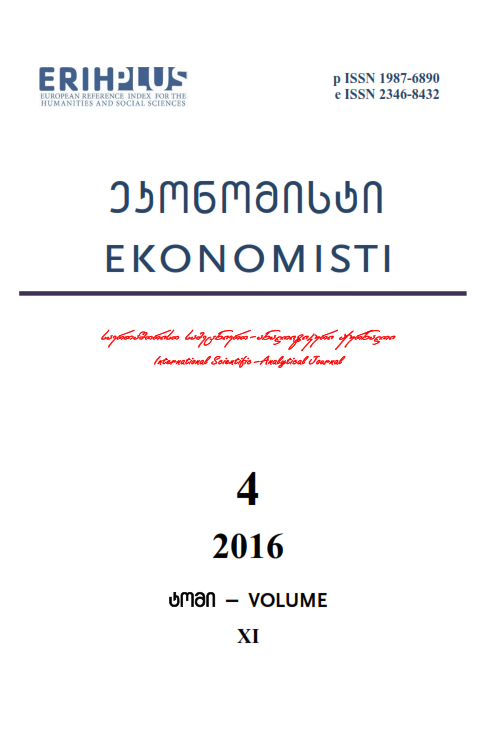
The international scientific and analytical, reviewed, printing and electronic journal of Paata Gugushvili Institute of Economics of Ivane Javakhishvili Tbilisi State University

TRADE POLICY AS AN INSTRUMENT OF ECONOMIC DEVELOPMENT
Summary
Permanent and dynamic global processes transform the world economy into a constant medium with a constant interaction of national economies, where the main trend is the liberalization of the international trade relations. It is defined that trade is an important factor of economic development and helps to overcome poverty problems in many countries of the world, but over the past twenty years trade has undergone a number of changes, the main ones are: price volatility, financial crisis, digitalization and intellectualization of economic development, further institutionalization of the world economy and an increase in the number of subjects of international economic activity, significant price fluctuations in commodity markets, the growing importance of trade in services. The study emphasizes that the trade policy plays the leading role as an instrument for the economic development of the country through effective multilateral and bilateral negotiations, implementation, revision, protection and restoration of trade laws, institutions, trade practices, as it relates to international exchange and turnover of goods, services, capital, technology, and people. The study devotes much attention to Ukraine, as the country has such an urgent problem as the increase in the effectiveness of trade policy, the expansion of the list of trade partners and geographical diversification due to political problems and the internal economic crisis: the annexation of a certain territory and armed conflict in the east of the country. The paper investigates the features and mechanisms for achieving the potential of the free trade zone of Ukraine with the EU. It is shown that at the present stage cooperation between Ukraine and the European Union is characterized with a high level of political and economic dialogue and integration into the free trade zone of goods. It is emphasized that modern trade and economic relations have a wide range of forms and methods of implementation. The gravity model is the most common method for assessing the effectiveness of bilateral trade flows, the economic effects of the free trade zone and the possible consequences of deepening integration cooperation. The methodological tools of the gravity model allowed to predict the volume of bilateral trade for subsequent years. During the research, the forecast of quantitative indicators of foreign trade turnover between the countries was developed up to the year 2020.
Keywords: international trade, trade policy, an in-depth and comprehensive free trade zone, Ukraine, the European Union.
